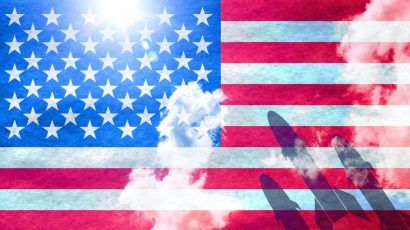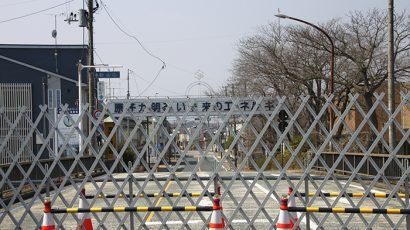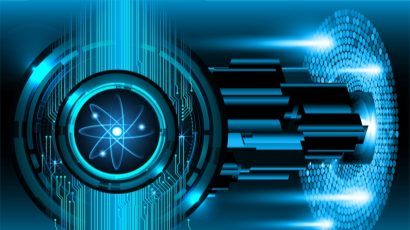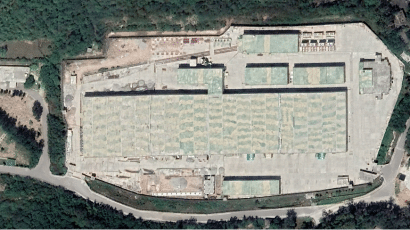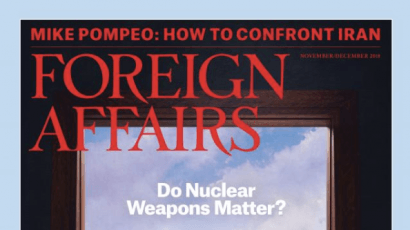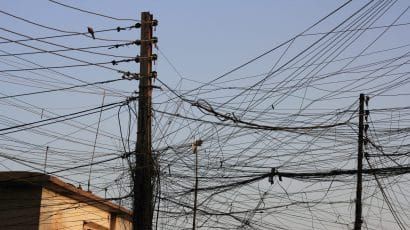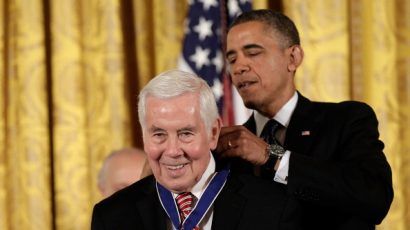Search results for nuclear terrorism
Fatwas for fission: Assessing the terrorist threat to Pakistan’s nuclear assets
Pakistan has long been considered a potential source of nuclear weapons for terrorists, even before it had a full-fledged nuclear program and decades before it demonstrated a yield-bearing nuclear explosive capability.
13 days — and what was learned
The most dangerous moment of the nuclear age -- and likely any age -- unfolded 50 years ago as the world waited and trembled. For 13 harrowing days, the leaders of the United States, the Soviet Union, and Cuba brought the planet within a hair's breadth of nuclear catastrophe. Despite the seemingly halcyon stability of deterrence throughout the Cold War, there were numerous moments during the Cuban Missile Crisis that could have escalated into full-blown nuclear war.
3/11 and 9/11: Codes for tragedy
For most Americans, 3/11 has no particular significance. (Hint: it's not that rock band from Omaha.) Some Europeans associate it with the Madrid train bombings of March 11, 2004. But, in Japan, 3/11 is universally recognized as shorthand for the events of March 11, 2011, when a huge offshore earthquake triggered a tsunami that devastated the country's northeastern coast and swamped emergency cooling systems at the Fukushima Daiichi Nuclear Power Station.
Nuclear security’s top priority
In the past two decades, at least two terrorist groups have made serious attempts at obtaining nuclear weapons or the nuclear material needed to make them. They won't be the last. Foiling terrorists willing to inflict unlimited damage requires the international community to prioritize the nuclear stocks that pose the greatest risks and take immediate steps to eliminate or secure them.
Nuclear safety vs security: Can the two cultures be harmonized?
While the earthquake and tsunami leading up to what happened at Fukushima Daiichi could not have been avoided, certain culture-based measures could have been implemented before, during, and immediately after the accident to help prevent the accident or mitigate the consequences. The International Atomic Energy Agency (IAEA) report, The Fukushima Daiichi Accident, identified complacency among … Continued
Growing threat: Cyber and nuclear weapons systems
Cyberattacks on nuclear weapons systems are all too plausible. Can nuclear deterrence survive when the weapons themselves are at risk?
That crazy talk about Robert Mueller
Conspiracy theorists are at it again, coming up with wild claims to undermine the special prosecutor. Here’s a second look at what really happened.
A visit to Russia’s secret nuclear labs
As the Soviet Union unraveled, US and Russian weapon scientists began a historic collaboration.
Nuclear Notebook: How many nuclear weapons does Pakistan have in 2021?
This Nuclear Notebook column examines Pakistan’s nuclear arsenal, which may include approximately 165 warheads. The authors estimate that the country’s stockpile could realistically grow to around 200 by 2025, if the current trend continues.
Cuando el temor es racional, pero perjudicial
En su ensayo de la tercera ronda, Siddharth Mallavarapu —respondiendo a mi declaración previa de que ahora es el momento para un plan de acción para el desarme, sin necesidad de aportar argumentos adicionales a favor de ello— señaló "que un plan de acción no puede separarse del argumento". Tiene razón y, a lo mejor, … Continued
Duck and cover
The evacuation plans governments draw up in case of a nuclear accident or attack may not work.
Does “Foreign Affairs” matter?
Foreign Affairs magazine publishes an unusual package, in which the lead article claims nuclear weapons no longer matter, and all the rest of the articles show why they do.
No, Robert Mueller Is Not “Radioactive”
Conspiracy theorists are coming up with wild claims to undermine the special prosecutor's credibility. Here's what really happened.
Nuclear power won’t fix Iraq’s energy crisis
Iraq is in an energy crisis. Is resurrecting the country’s nuclear power program really the solution?
Why nuclear dominoes won’t fall in the Middle East
A close analysis of probable scenarios suggests that a final Iranian nuclear agreement is unlikely to trigger a Middle East nuclear weapons cascade
Bulletin of the Atomic Scientists’ Special Issue: Nuclear Energy in the Middle East
For immediate release: January 15, 2016 Bulletin Media Contact: Janice Sinclaire, [email protected] CHICAGO– January 15, 2016 – The nuclear agreement that Iran and six major world powers signed in 2015 has focused attention on Middle Eastern nuclear politics. But as the Bulletin of the Atomic Scientists’ Executive Editor and Publisher, Rachel Bronson, observes, that deal … Continued
When fear is rational, but harmful
In his Round Three essay, Siddharth Mallavarapu—responding to my earlier assertion that now is the time for action toward disarmament, not further arguments in favor of it—wrote that "action cannot be divorced from argument." He is correct, and I may have overstated my case in my earlier essay. Indeed, the best approach toward abolishing nuclear … Continued
Disarmament while the chance remains
Here’s the question I can’t help but ask as I read through this roundtable, including some readers’ responses to it: What’s so wrong with discussing a nuclear weapon ban treaty? This seemingly simple question can be understood in at least two ways. First, it’s a reaction to certain critics of the ban treaty initiative who … Continued
Senator Richard G. Lugar: An appreciation
He thought the unthinkable. He took a political risk to advance what looked to be an unpopular idea. He put the security of his country, and indeed the world, ahead of his own political interests. He reached out, not only to another political party but to America’s former mortal enemy.
